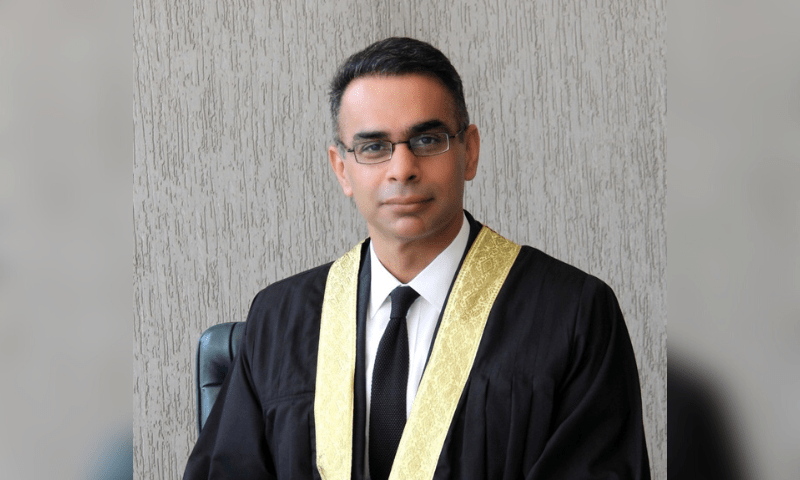Islamabad High Court Justice Babar Sattar has issued contempt notices to the director generals (DG) of the Federal Investigation Agency and Intelligence Bureau, and members and chairman of the Pakistan Telecommunication Authority for filing “collusive applications” seeking his recusal from a case pertaining to audio leaks.
The development came as the court heard a case in connection with the petitions filed last year by ex-premier Imran Khan’s spouse Bushra Bibi and Najam Saqib, son of former chief justice of Pakistan Saqib Nisar, against alleged audio leaks.
Last week, Pemra had requested Justice Sattar to recuse himself from hearing the case, contending that another bench that had already dealt with an identical matter may proceed on the petitions in hand. Similar petitions had also been filed by the FIA, the PTA and the IB.
In the hearing on April 29, Justice Sattar had imposed fines worth Rs500,000 each on the FIA, PTA and Pemra while dismissing their pleas seeking his recusal. He had also hinted at initiating contempt proceedings against the bodies.
A day ago, he dismissed a plea filed by the IB in which it sought to withdraw its petition seeking the judge’s recusal.
The detailed court verdict of the April 29 hearing, a copy of which is available with Dawn.com, was issued and said: “Let a notice also be issued to FIA DG and IB DG to satisfy the court as to why contempt proceedings should not be initiated against them for filing collusive applications to embarrass the proceedings of the court and to interfere with and abuse the process of the court and divert the course of justice within the meaning of Article 204 of the Constitution.
“Let notices also be issued to PTA chairman and members who have authorised filing of recusal application on behalf of PTA to satisfy the court as to why contempt proceedings should not be initiated against them for filing collusive applications to embarrass the proceedings of the court and to interfere with and abuse the process of the court and divert the course of justice within the meaning of Article 204 of the Constitution.”


